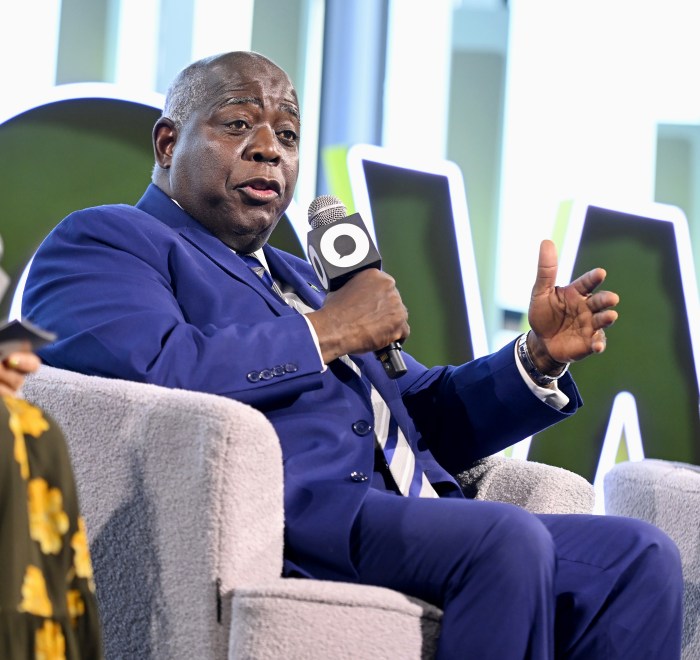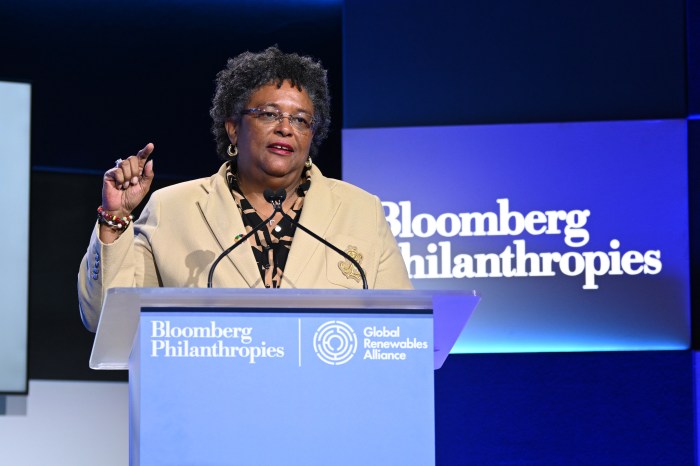Many CARICOM governments, already cash strapped from a year of the COVID pandemic, reduced taxes from duty free trading in the bloc and depressed prices for exports would be happy to explore and find commercial quantities of oil and gas but the situation is not so in The Bahamas, the regional tourism powerhouse.
While fellow bloc member Guyana is in its second year as an oil exporter and producer and as Suriname is racing towards similar status by 2025, there is a rising tide of opposition against state-owned Bahamas Petroleum Company (BPC)’s efforts to find commercial quantities of oil and gas.
Prime Minister Hubert Minnis this week restated his opposition to any offshore oil drilling in the archipelago, contending that any accidental oil spill could wipe out the country’s lifeline tourism industry and bring the state to ruins. He, a slew of other senior cabinet ministers and environmental activists say the BPC is not guaranteed any license renewal in the coming weeks even though the first Perseverance1- well drilled in recent weeks failed but showed promising hydrocarbon indications. A bipartisan group of American lawmakers have also formally stated their opposition to offshore drilling saying they fear a similar eco disaster as the Deepwater Horizon disaster in the Gulf of Mexico in 2010 could affect the whole area and its tourism product.
The BPC had made its intention clear it will in fact apply for renewal of exploration permits that are scheduled to expire in June. Local laws say applications for new documents must be in three months before the expiry date. PM Minnis says he will oppose any efforts to drill a second and any other such well.
“I have not seen any requests. But, I will state again my position with respect to drilling in our waters. I am totally against drilling within our sea waters. I think our waters should be preserved. We have some of the best fish nurseries in the world. I think it’s essential for us to preserve that, protect our marine resources, protect our waters, “PM Minnis told reporters.
The governmental efforts to blank exploration come as a slew of other CARICOM nations move to ramp up exploration by handing out licenses.
Authorities in Barbados, for example, recently said all systems are in place for Australian oil explorer BHP to begin work later this year. Their program was stymied by the COVID-19 pandemic in the past year but Minister of Energy, Kerrie Symmonds said, “we’re now at the stage where the company is ready to commence its offshore exploration work in 2021. Over the last year while we were on pause due to COVID, we were negotiating with the company to explore ways in which we could improve the exploration work program.”
Jamaica and Grenada are also moving to get into the race but the Jamaicans are well ahead of Grenada and have their eyes on work off its southern coast as well as onshore acreages where oil seeps have been detected.
In the region, a mid 2015 massive oil find by Guyana appears to have served as the catalyst for its bloc neighbors, as Suriname soon followed with a series of successful but massive wells bearing sweet, light crude that needs little refining similar that of Guyana. The nearly 25 finds by the two nations have now made the Guyana-Suriname basin as one of the most attractive in the world, so much, ExxonMobil is selling off some of its assets around the world to focus on its Guyana gem of an oil find.
But for officials in The Bahamas, the tourism product is way more important than the millions in revenue that could be accrued from an oil sector.
“That’s our tourist product. That’s our food source. That’s our economy. And yes, oil may make a few people rich but look around the world. Does it benefit the entire nation? But I do know that tourism benefits all. I do know that our marine life benefits all. I do know that the beauty of our resources and our water benefits all and I will do all to protect it,” PM Minnis said.
























